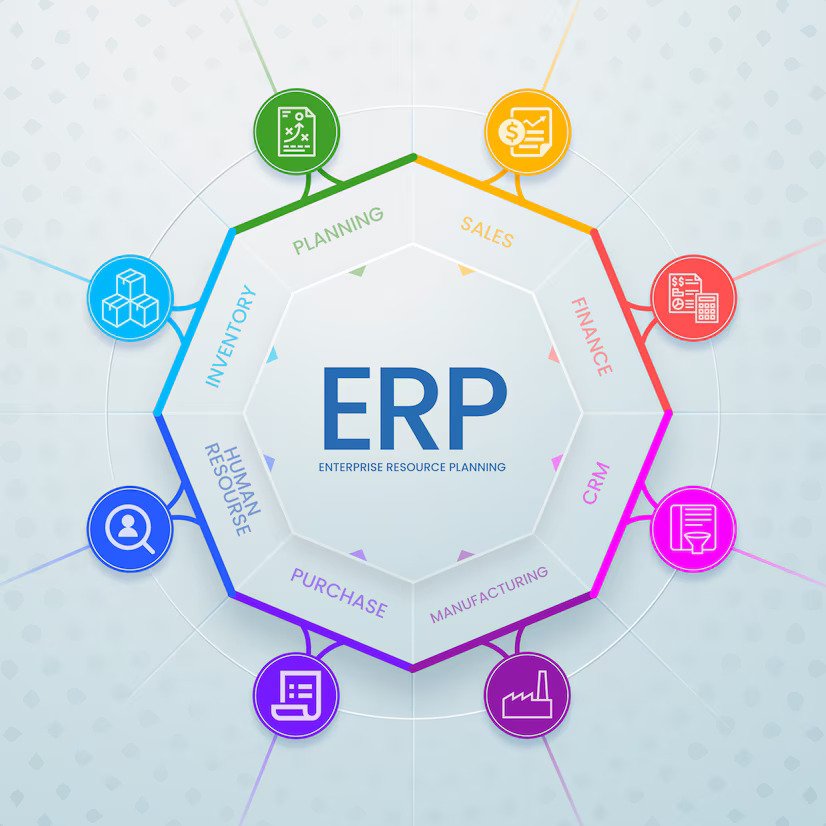
In today’s fast-paced and highly competitive business environment, operational efficiency is more critical than ever, particularly when it comes to managing the supply chain. As businesses continue to expand their operations and enter global markets, managing complex supply chain operations becomes increasingly challenging. Companies must contend with fluctuating demand, supply shortages, and the complexities of coordinating across multiple regions and suppliers. This is where ERP (Enterprise Resource Planning) supply chain management tools become indispensable. These powerful systems integrate various business processes into one cohesive platform, helping companies streamline their operations. By leveraging ERP supply chain tools, businesses can optimize processes, eliminate inefficiencies, reduce costs, and ultimately improve their overall productivity.
ERP systems offer real-time visibility across the entire supply chain, giving businesses a complete view of their operations and enabling data-driven decision-making. With this visibility, businesses can anticipate potential issues, address them proactively, and adapt to rapidly changing market conditions. This article explores the ways in which ERP supply chain management tools can help businesses achieve higher efficiency and smoother operations. From inventory management and order processing to procurement and logistics, ERP solutions allow companies to track and manage every aspect of their supply chain in real time. Let’s dive deeper into the key features of supply chain ERP tools and how they can revolutionize your business operations.
1. ERP Supply Chain: Streamlined Inventory Management
One of the most significant benefits of supply chain ERP management tools is the ability to streamline inventory management. Traditionally, businesses struggle with excess inventory, stockouts, and inaccurate forecasting. However, ERP systems provide real-time data on stock levels, trends, and demand forecasts.
With an integrated system, businesses can easily track inventory across multiple warehouses, monitor the flow of goods, and automatically generate purchase orders when inventory falls below a predefined threshold. This reduces manual intervention and the risk of human error. Additionally, businesses can avoid overstocking, which ties up capital, and understocking, which can lead to missed sales opportunities. As a result, businesses can optimize their inventory turnover rates and ensure they have the right products available at the right time.
2. Improved Demand Forecasting
ERP systems enhance demand forecasting by consolidating data from multiple sources, such as sales history, market trends, and customer behavior. Using predictive analytics, ERP supply chain tools can forecast demand more accurately, allowing businesses to plan production, procurement, and inventory levels effectively.
With a more accurate view of future demand, businesses can avoid production delays and prevent supply chain bottlenecks. This data-driven approach ensures that businesses meet customer demand without overcommitting resources. Furthermore, better forecasting reduces waste and minimizes the risk of having unsold products or surplus stock.
3. Enhanced Supplier and Vendor Management
Effective supply chain ERP tools simplify supplier and vendor management by centralizing key information about suppliers, contracts, lead times, and payment terms. This enables businesses to keep track of supplier performance and make informed decisions when selecting vendors.
With a well-integrated ERP system, businesses can easily evaluate supplier performance based on delivery times, quality, and costs, helping identify areas for improvement. ERP systems also streamline the ordering process, enabling automatic replenishment, purchase order tracking, and real-time communication with suppliers. By improving collaboration with vendors, businesses can negotiate better terms, reduce lead times, and lower overall procurement costs.
4. Real-Time Data and Visibility
Real-time data is a game-changer in supply chain ERP management. One of the most significant challenges businesses face in supply chain management is a lack of visibility into various processes, which can lead to inefficiencies, delays, and costly mistakes. supply chain ERP management tools provide businesses with end-to-end visibility into their entire supply chain.
This transparency allows businesses to monitor the movement of goods, track order fulfillment status, and manage logistics in real time. With this visibility, businesses can identify potential issues before they escalate, such as delayed shipments or supply shortages, and take proactive measures to mitigate risks. It also enables businesses to respond more quickly to customer inquiries, improving customer satisfaction and enhancing brand loyalty.
5. Integrated Logistics and Shipping Management
ERP supply chain tools also integrate logistics and shipping management, which is critical for businesses involved in the distribution of goods. These tools provide features that enable businesses to optimize their delivery routes, select the most cost-effective shipping methods, and track shipments in real time.
By using ERP systems to manage logistics, businesses can minimize shipping delays, reduce transportation costs, and ensure timely delivery to customers. Integration with third-party carriers and logistics providers allows businesses to manage multiple shipping channels within a single platform, giving them more control over their supply chain operations.
6. Scalability and Flexibility
Businesses’ supply chains are increasingly complicated as they expand. ERP systems are designed to scale with a company’s growth, making it easier to add new suppliers, manage additional inventory, and accommodate increased demand. With an ERP supply chain system, businesses can seamlessly expand their operations without sacrificing efficiency.
These systems are also flexible, allowing businesses to customize features based on their specific needs. Whether you’re in manufacturing, retail, or logistics, ERP solutions can be tailored to meet the unique demands of your business, helping you scale effectively and maintain operational efficiency.
In conclusion, the role of ERP supply chain tools in maximizing operational efficiency cannot be overstated. From inventory management and demand forecasting to supplier management and real-time visibility, ERP systems streamline processes, reduce costs, and enhance decision-making. By implementing an ERP solution tailored to your business needs, you can optimize your supply chain, improve customer satisfaction, and ultimately drive business growth. In an increasingly competitive marketplace, leveraging the power of ERP tools is no longer just an option; it’s a necessity for success.

